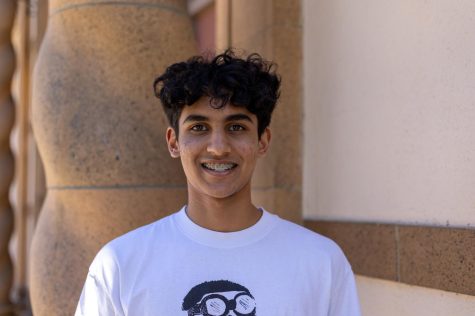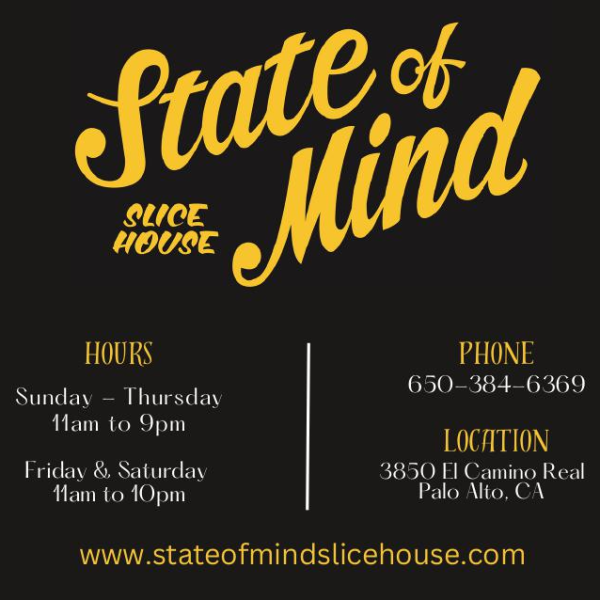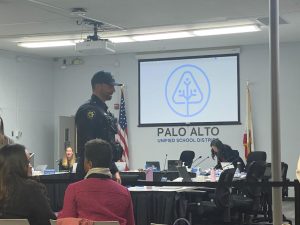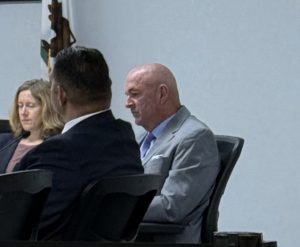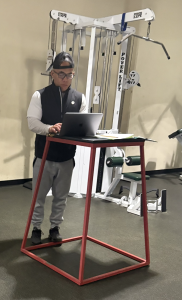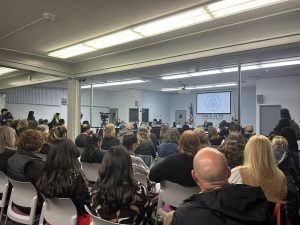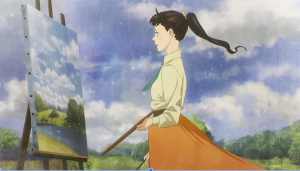SJP students present CSPAN competition video documentaries
February 3, 2023
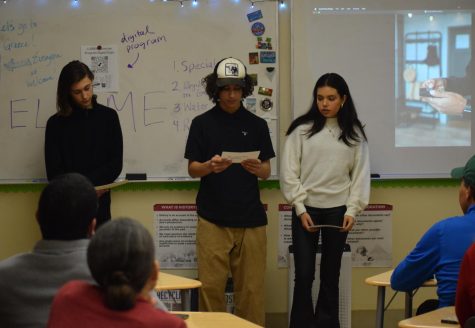
Parents and staff are applauding Social Justice Pathway sophomores for researching real-world issues through their annual StudentCam documentary projects, which they presented Thursday night at Palo Alto High School.
The Cable-Satellite Public Affairs Network holds its StudentCam competition every year, tasking students from grades six to 12 with creating a short five-to six-minute video documentary in a response to a prompt.
This year, the prompt was “If you were a newly elected member of Congress, which issue would be your first priority and why?”
The videos contain a student’s answer and reasoning explored through visual-aids, interviews and recorded footage. Additionally, the top 150 student documentaries are awarded cash prizes totaling over $100,000.
Since mid-November, sophomores in Paly’s Social Justice Pathway have worked in groups of two to three to research and compose their video documentaries. Topics discussed included a variety of current issues — from gun control to affordable housing — looking both at the national and local levels.
According to event co-organizer and SJP English teacher Keith Tocci, the project was designed to expose students to important current events.
“It’s about giving them[students] an opportunity to engage with real world issues that they cared about, or at least things that they came up that would be interesting,” Tocci said. “And, to have a genuine audience in the sense of submitting these documentaries to CSPAN itself [where] they’re going to judge them.”
Students presented their videos in classrooms in the 800s building where parents invited had the opportunity to visit a variety of different video-documentaries starting at different times. The presentations consisted of introductions from students explaining their topic as well as discussing challenges they faced in the process of creating their documentaries. After showing their videos, parents were given a chance to ask questions.
Tocci said presenting to their families gave the projects more meaning.
“[It’s] taking ownership of an idea, doing something in the classroom, and then going out and being like, ‘Oh, I have to now talk about this. This is real. There’s something I learned about and now I need to engage with conversation,’” Tocci said. “Does that happen in classrooms all the time? Not necessarily. But this is putting them in that situation.”
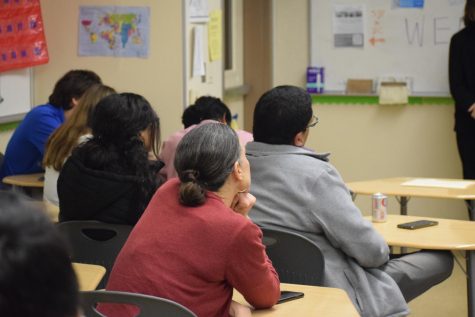
Parent Rhonda Jeffrey said she appreciated the way the event was set up, especially with the Q&A session.
“There was a lot of teamwork, and a lot of work that went into this and I felt that the question and answer session was really well answered by the students there,” Jeffrey said. “You could tell that they did their research and worked well together. And I also liked in the beginning where the teams talked about the difficulties they had in working with each other and working with people out in the community.”
Many documentaries contained interviews with members of the Palo Alto City Council and other legislative officials, including members of Congress and Senate.
Samantha Fan, whose documentary focused on abortion and the overturning of Roe v. Wade, said doing projects like these gives students more exposure to social justice systems.
“I personally really enjoyed the project-based learning and I really liked the added part of the social justice to it,” Fan said. “We can explore our own current events that we think are important and issues like that.”
Last year, a group of sophomores placed second in the competition and received a cash prize for their documentary. Kenneth Tinsley, SJP history teacher and organizer, said the staff used the prospect of the prize money won as a motivator for this year.
“Last year was notable and inspiring thing for the kids this year because we did actually have someone win second place,” Tinsley said. “What we did is we got the big check that they got in place in there and kind of point to it like ‘this could be you!’ and give a little bit of inspiration there.”
According to Tinsley, the Social Justice Pathway has hosted the CSPAN completion project since 2018. Tocci said the project helps develop students’ critical thinking skills academically, as well as outside the classroom.
“The kids did the best job of explaining how they think these things are gonna work for them,” Tocci said. “Learning how to engage in difficult projects with diverse groups, kids that don’t necessarily know before, to achieve some kind of overall goal.”
Being Tocci and Tinsley’s first year as social justice teachers, Tocci said he is excited for the future past this event.
“I’m looking forward to talking with them more in thinking about how they experienced that, and what they think will be more effective next time,” Tocci said. “It’s seeing them get this far and maybe they didn’t think they could get this far. It’s like what can we do now? What’s next? So I am satisfied and excited for what’s next.”


